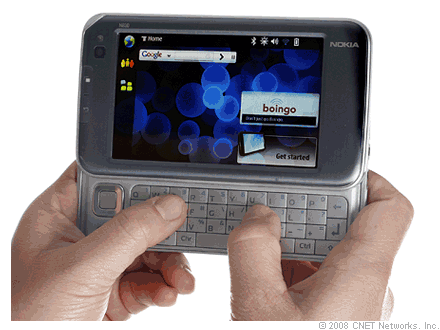A Nokia, Intel partnership makes sense, but they need to focus on smartphones

Intel deperately needs to get into the mobile phone market, which is expected to grow far more rapidly than the PC market over the next decade. Nokia, while still technically the leader in global smartphone market share, badly needs to generate some smartphone buzz to help fight off growing challenges from Apple, BlackBerry, Palm, and Google Android.
On Tuesday, the two companies announced a partnership in which Nokia will use Intel chips in its mobile devices. The collaboration will include both mobile chipsets and mobile broadband connectivity. However, the lack of detail provided by the two companies leaves a lot of unanswered questions about how much of an impact this partnership will have on the nascent smartphone market.
Anand Chandrasekher, head of the Intel's mobility group, said:
"This Intel and Nokia collaboration unites and focuses many of the brightest computing and communications minds in the world, and will ultimately deliver open and standards-based technologies, which history shows drive rapid innovation, adoption and consumer choice. With the convergence of the Internet and mobility as the team's only barrier, I can only imagine the innovation that will come out of our unique relationship with Nokia. The possibilities are endless."
In the conference call for reporters, the two companies repeatedly drove home the idea that they want to create a "new class of devices" that transcends the current smartphones, laptops, and netbooks and uses Linux software (based on Moblin and Maemo) to create on open platform. Both Nokia and Intel refused to speculate on any details about potential devices that could emerge from this partnership.
It's also unclear whether this partnership will lead to a new line of Intel smartphone chips. Intel already has chips for small devices. The "Moorestown" platform is used for what Intel calls Mobile Internet Devices (MIDs), which are basically handheld computers smaller than a netbook but more powerful than a smartphone. But, despite partnerships with lots of hardware makers to build MIDs, these devices have failed to attract buyers in the marketplace.
Nokia also knows something about failed MIDs. Earlier this year, the company discontinued its MID line of the devices, the Nokia N800/N810 Internet Tablet (below).

Unfortunately, the Intel, Nokia partnership announced today sounds like an attempt to resurrect and reshape the MID. That would be a mistake. The market has already responded and said that it does not want that type of device. Users want smartphones on the go and full-fledged computers with roomy screens when they are sitting down to get work done or immerse in computer-based entertainment.
It would make a lot more sense for Nokia and Intel to get laser-focused on building powerful next-generation smartphones. With the N97, Nokia already has one of the most capable smartphones on the planet. Putting Intel chips inside a device like that one would send a message to the market that they've got an uber-powerful device that can handle PC-like tasks and lots of multimedia, wrapped in the popular form factor of a smartphone.